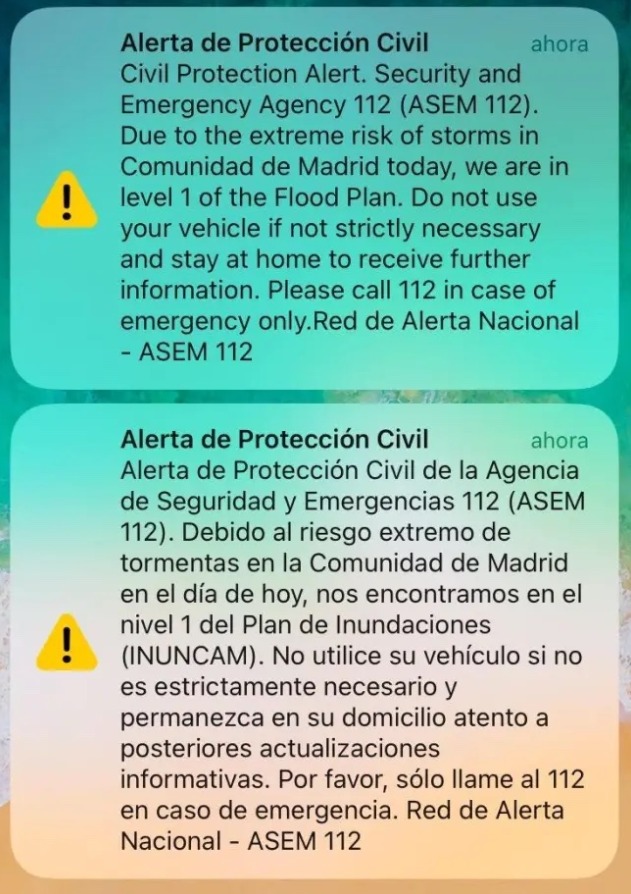The Evolution of Global Conflicts
Throughout history, conflicts between nations have been a constant feature of the global geopolitical landscape. From battles fought on traditional battlefields, through clashes at sea and in the air, to eventual expansion into outer space and, more recently, into cyberspace, The nature of warfare and security has evolved significantly.
Conflicts on traditional battlefields
For centuries, conflicts between nations have been fought on land, sea, and air. Land battles have been the primary theater of warfare, from ancient clashes between empires to the world wars of the 20th century. Traditional military strategy focused on deployment of troops, control of territory and direct confrontation with the enemy on defined battlefields.
On the other hand, control of the seas has historically been key to the military and economic power of nations. From the war fleets of ancient times to the modern navies of today, control of sea routes has been vital to international trade and the projection of military force.
Furthermore, the development of military aviation in the early 20th century brought conflicts into the air, ushering in a new era of warfare.
Air combat and strategic bombing became fundamental elements of military strategy, especially during World War II.
However, as the 20th century progressed, War and security extended beyond traditional battlefields towards new domains.
The expansion into outer space
With the Soviet Union's launch of Sputnik in 1957, the space age ushered in a new front in the arms race between the Cold War superpowers. Outer space quickly became a potential battlefield, with the militarization of Earth orbit and the development of anti-satellite weapons systems.
Although international treaties, such as the 1967 Outer Space Treaty, have explicitly prohibited the deployment of nuclear weapons and other weapons of mass destruction in space, the competition for space dominance continues among the world's major powers.
The dependence on technology Space technology for communication, navigation and military surveillance has made control of outer space increasingly strategic on the global stage.

The era of cybersecurity: the new battlefront in the 21st century, and why early warning systems are so important
In the 21st century, the evolution of war and security has led to the growing importance of cybersecurity as a new battlefrontWith the advancement of digital technology and global interconnectedness, cyberspace has emerged as a critical playing field for cyberwarfare, espionage, and sabotage.
The cyber attacks They can be carried out by state actors, terrorist groups, criminal organizations, and even technically savvy individuals, making cybersecurity a complex and multifaceted challenge.
These attacks can be aimed at stealing confidential information, disrupting critical infrastructure, destabilizing economies and societies, or even causing physical harm.
The importance of cybersecurity and the need for effective warning systems have become even more evident in the context of the now-overcome COVID-19 pandemic, where cyberattacks have increased significantly, taking advantage of the ever-increasing reliance on digital technology and remote work.
In an increasingly digital world, cybersecurity has become a key priority for both businesses and countries. Online threats are becoming more sophisticated and pervasive, making cybersecurity a priority. Data protection and the prevention of cyberattacks are crucial aspects of business and government management..
Recently, the Ministry of the Interior, through Civil Protection, activated the emergency alert system called ES-Alert, which sends notifications to all mobile phones in a specific area in situations of risk to citizens.
This alert system, although initially designed for natural emergencies such as floods or extreme weather events, also has important implications for national cybersecurity, given that critical infrastructures that support basic services for citizens are constantly exposed to cyber threats, and alert and response processes are essential to mitigating the impact of potential cyberattacks. Will we ever see it activated due to a cybersecurity alert?
Let's take an example: the Olympic Games, which will be held in July 2024 in Paris. The cybersecurity sector is working around the clock to ensure that the Games, the citizens and the image of France are not damaged by possible terrorist attacks, one of the greatest risks to which they are exposed..
The opening event was expected to attract around 700,000 people along the Seine River, but after assessing the situation, French Interior Minister Geral Darmanin reduced the maximum number of attendees to 300,000. A terrorist attack could take place in a traditional way, but also by attacking key computer systems in the French capital.
For example:
- The cyber attacks Targeting critical infrastructure such as the power grid, transportation systems, communications, and water transportation, they could cause massive disruptions during the opening event and the Olympics themselves.
- The DDoS attacks They can flood the organization's servers with a large volume of malicious traffic, which could cause online ticketing systems, the official Olympic website, or other critical services to go down, creating all kinds of chaos and tension.
- Cybercriminals could try infect systems with ransomware or malware to disrupt operations during the Olympics. This could impact ticketing, access to athlete information systems, and live event streaming.
- The communication networks used to coordinate operations during the Olympics could be targeted by intruders trying to intercept confidential information or disrupt communication between security and event management teams.
- Connected devices and the Internet of Things (IoT) used in Olympic venues, such as security cameras and access control systems, could be exploited by attackers to gain unauthorized access or perform malicious actions.
In this context, Alert systems like ES-Alert play a crucial role in defending against cyber threats., warning the population in extreme situations of the situation they face along with some basic guidelines on how to act.

What can we do?
In response to this growing threat, Governments implement cybersecurity strategies And specialized agencies have been established to combat cyberattacks and protect critical infrastructure, but it remains essential even in the 21st century to regulate behavior in cyberspace and promote international cooperation in the fight against cyber threats.
It is crucial that nations and organizations be prepared to face emerging security challenges, including cybersecurity, by implementing effective strategies, adopting preventive measures, and promoting international cooperation. Only through a comprehensive and collaborative approach can we ensure security and stability in an increasingly complex and changing world. "If you want peace, prepare for war."
Learn much more in our Professional Master in Cybersecurity, Ethical Hacking and Offensive Security.



































